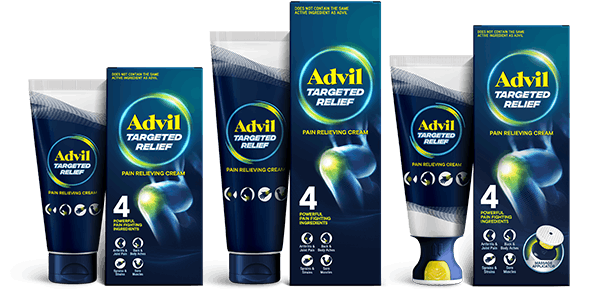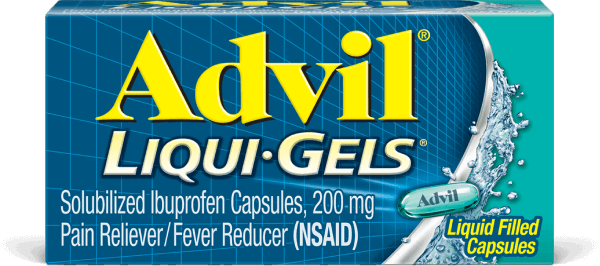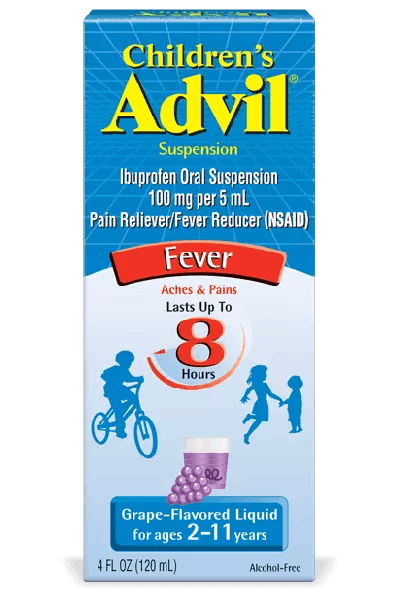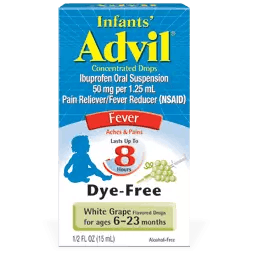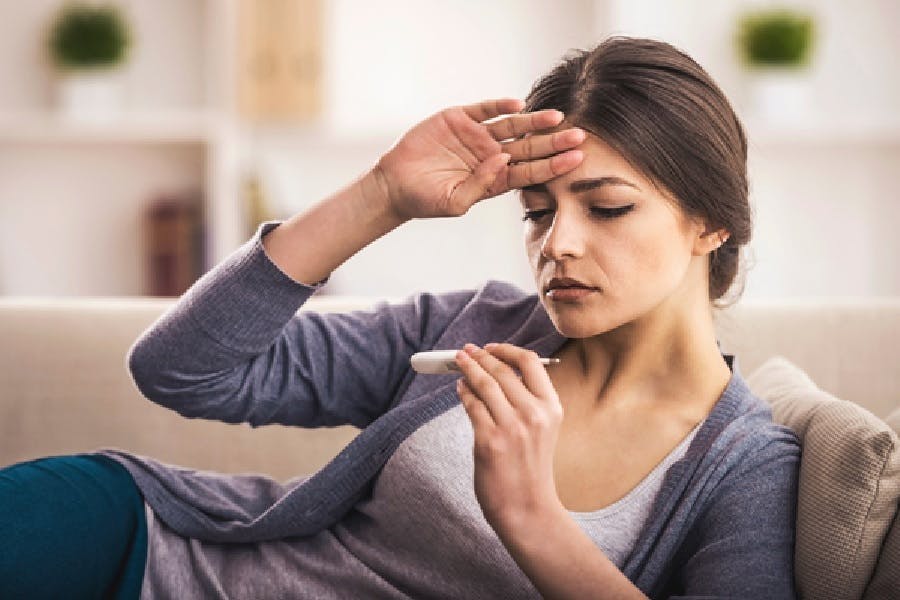How to Reduce a Fever
Muscle Aches & Pains
Fevers, which are a higher than normal body temperature, are a fairly common occurrence. They're a sign that your body's natural functions are fighting off an infection. For adults, the average normal body temperature is around 98.6 F and a fever is a temperature higher than 100.4 °F.i More symptoms of fever to watch out for beside the obvious heightened temperature are chills, body aches, fatigue, intermittent or consistent sweating, or a flushed complexion and hot skin.ii If your fever rises above 102F it should be treated at home and you should reach out to your doctor if it doesn't reduce after a few days.iii
Although fevers are a natural bodily function,iii high fevers and the accompanying symptoms can be uncomfortable and unpleasant. Read on to learn how to reduce a fever to help yourself or your family.
6 Tips for Reducing Fever
Even once you have confirmed it’s a fever, it can be confusing what to do next and how to correctly manage your symptoms. Here are some quick tips on how to reduce a fever:
1. Stay Hydrated
Make sure to drink enough water while you have a fever to prevent dehydration. If you're tired of plain tap water, try flavored water, teas, sports drinks, ice pops or gelatin.iv
2. Take a Lukewarm Bath or Sponge Bath
You can take a lukewarm (NOT cool) bath or apply damp washcloths to your forehead or wrists. Although it may feel better, cold or cool baths can actually shock your body more than needed and make you shiver when you have a fever. Stick to lukewarm water and damp washcloths to get some relief. iv
3. Get Enough Rest
Getting plenty of sleep and relaxation is important to feeling your best and helping your body stay healthy while it's fighting off an infection. Try to get at least eight hours of sleep and take cues from your body during the day and rest when needed. iv
4. Dress in Light Clothing
Don't bundle up too much even if you have chills along with your fever. Keep dressed in lightweight, breathable clothes so that your body can get the airflow it needs to reduce the fever. iv
5. Eat Light, Easily Digestible Foods
You might not feel like eating, but keep small portions of easily digestible food around. Try foods like oatmeal, soup or rice and chicken. Avoid heavy, greasy foods that can heat up your body or possibly cause indigestion. iv
6. Take OTC Fever Reducers
It's recommended for adults to take over-the-counter medications like ibuprofen, naproxen, acetaminophen or aspirin to help reduce fever and help with any accompanying aches and pains.iv Try Advil products that contain ibuprofen to help temporarily reduce fever like Advil Liqui-Gels, Advil Tablets or Advil Liqui-Gels Mini. All three of these products will help to temporarily reduce fever when taken as prescribed. Stop use and ask a doctor if your fever gets worse or lasts more than three days.
Common Causes of Fever
There can be multiple causes of fever. The most common cause of fever is an infection, such as the cold or flu. Other conditions that can commonly cause fever include earaches, bronchitis, strep throat, urinary tract infections, or mononucleosis (mono). But you can also get a higher-than-normal temperature when nothing is wrong. Your body temperature can range throughout the day and fluctuate from normal things like stress, excitement, heavy clothing or food, certain medications, menstrual cycle and exercises.v
When to See a Doctor for Fever
Even though fevers are natural, they can become harmful if they get too high or run too long. If you can't reduce the fever and your temperatures remains over 103F for more than two hours, reach out to your doctor or healthcare provider for care. There are also other symptoms to watch out for that accompany fever. One important limit to note is that any fever that rises above 105F and does not come down after medication is considered a life-threatening medical emergency and you should call 911.vi
If you experience any of these symptoms accompanied by fever, call a doctor right away:
- A fever with a stiff neck, confusion or irritability
- Dehydration shown by less urine, no tears, and sunken eyes
- Seizures
- High fever with a rash
- Fever lasting longer than two days
- Sensitivity or irritation to light vi
- Loss of consciousness
- Trouble breathing
- Vaginal discharge that is discolored or bad smelling
- Severe pain or swelling anywhere in the body
- Pain when urinating or urine that smells bad vii
It's not likely you'll experience these fever complications, but it's important to have all the facts so you can keep yourself and your family healthy! Follow our tips to reduce your fever and get to feeling better. Learn more in our Tips and Resources center and find Advil fever reducer products near you.
SOURCES
i. Fever. Cleveland Clinic. https://my.clevelandclinic.org/health/symptoms/10880-fever/ Accessed 7/24/2020. Referenced text is highlighted in the source PDF.
ii. Fever. Cleveland Clinic. https://my.clevelandclinic.org/health/symptoms/10880-fever/ Accessed 7/24/2020. Referenced text is highlighted in the source PDF.
iii. Fever. Cleveland Clinic. https://my.clevelandclinic.org/health/symptoms/10880-fever/ Accessed 7/24/2020. Referenced text is highlighted in the source PDF.
iv. Treating Fever in Adults. Harvard Health Publishing. https://www.health.harvard.edu/staying-healthy/treating-fever-in-adults/ Accessed 7/24/2020. Referenced text is highlighted in the source PDF.
v. Fever: Possible Causes. Cleveland Clinic. https://my.clevelandclinic.org/health/symptoms/10880-fever/possible-causes/ Accessed 7/24/2020. Referenced text is highlighted in the source PDF.
vi. Fever: When to Call the Doctor. Cleveland Clinic. https://my.clevelandclinic.org/health/symptoms/10880-fever/when-to-call-the-doctor/ Accessed 7/24/2020. Referenced text is highlighted in the source PDF.
vii. Treating Fever in Adults. Harvard Health Publishing. https://www.health.harvard.edu/staying-healthy/treating-fever-in-adults/ Accessed 7/24/2020. Referenced text is highlighted in the source
By clicking the link(s) above, you will be taken to an external website that is independently operated and not managed by Haleon. Haleon assumes no responsibility for the content on the website. If you do not wish to leave this website, do not click on the links above.
